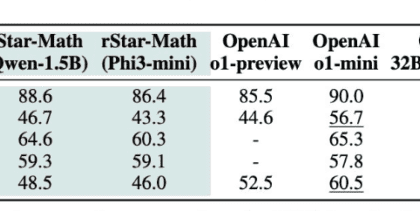Nvidia, Google, Microsoft and dozens of other tech companies took to the HLTH event to show off their AI tools, which they say will save doctors and nurses valuable time.
The National Event on the Role of New Technologies in Health Promotion (HLTH) was held on October 20-23 in Las Vegas; This year, it will attract more than 12,000 industry leaders, and artificial intelligence tools will be the star of this year’s GITEX exhibition. Doctors and nurses are dealing with huge amounts of paperwork related to patient records and insurance companies, often manually.
A daunting administrative workload is one of the main causes of burnout in the field, and it’s part of the reason why a shortage of 100,000 healthcare workers is expected to be felt across the United States by 2028.
Meanwhile, tech companies are eager to get a piece of what could be a $6.8 trillion market by the end of the decade. Tech companies argue that their generative AI tools can help doctors and nurses.
For example, Google said it is trying to expand its healthcare customer base with the help of artificial intelligence. On Thursday, the company announced the general availability of Vertex AI Search for Healthcare, which it introduced as a pilot during HLTH last year.
Google said Vertex AI Search for Healthcare enables developers to build tools to help doctors search medical records. New features in Google’s healthcare data search engine will help organizations build the platforms they need to support productive AI, according to Google.
On Thursday, Google released the results of a survey that found that doctors spend nearly 28 hours a week on paperwork. In the survey, 80 percent of providers said this administrative work takes up their time, and 91 percent said they feel positive about using AI to streamline these tasks.
Similarly, on October 11, Microsoft introduced a suite of tools aimed at reducing the administrative workload of doctors, including medical imaging models, healthcare delegation services and an automated documentation solution for nurses, most of which are still in development. They are early in development.
Microsoft already offers an automated documentation tool for doctors through its subsidiary, Nuance Communications, which it acquired in 2021 in a $16 billion deal.
The tool, called DAX Copilot, uses artificial intelligence to transcribe doctors’ meetings with patients and turn them into clinical notes; This means that doctors do not need to spend time typing these notes.
AI scripting tools like DAX Copilot have grown in popularity this year, and Nuance competitors like Abridge, which has reportedly raised more than $460 million, and Suki, which has raised $165 million, will also be at the HLTH conference.
Dr. Shiv Rao, founder and CEO of Abridge, told CNBC that the adoption of this new form of clinical documentation by the healthcare industry is “historic.” Nvidia is also preparing to handle the workload of doctors and nurses at HLTH. The company’s vice president of healthcare, Kimberly Powell, will deliver a keynote address on Monday that will discuss how generative AI can help healthcare professionals, according to the event website.
Nvidia graphics processing units, or GPUs, are used to create and deploy the models that power OpenAI’s ChatGPT and similar applications. As a result, Nvidia has been a major beneficiary of the AI boom. Nvidia’s stock is up more than 150% year-to-date and has tripled in value over the past year.
The company has steadily made inroads into the healthcare sector in recent years, offering a range of AI tools in medical devices, drug discovery, genomics and medical imaging. Nvidia has also begun extensive collaborations with companies such as Johnson & Johnson.
While the healthcare sector has historically been slow to adopt new technology, since ChatGPT hit the scene two years ago, the buzz around office AI tools has been undeniable.
However, many health systems are still in the early stages of evaluating tools and vendors and will be exhibiting at HLTH. Tech companies need to prove they can tackle one of the health care industry’s most complex problems.
RCO NEWS

















